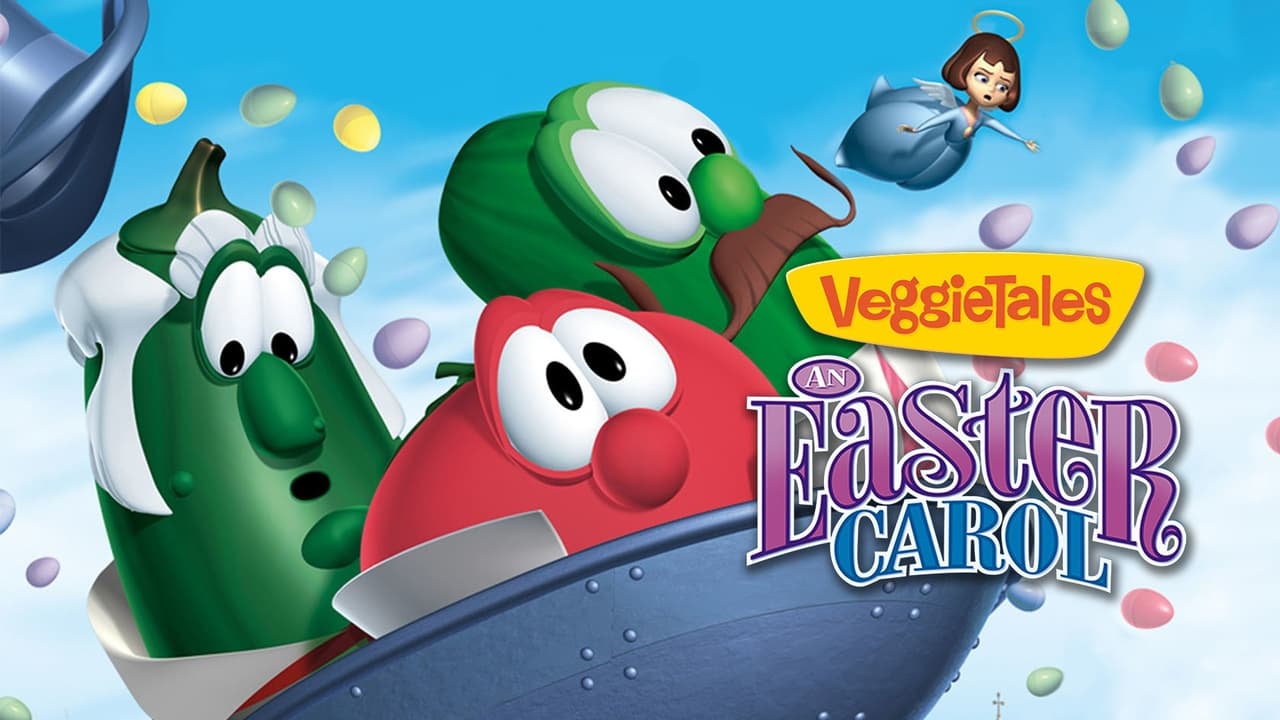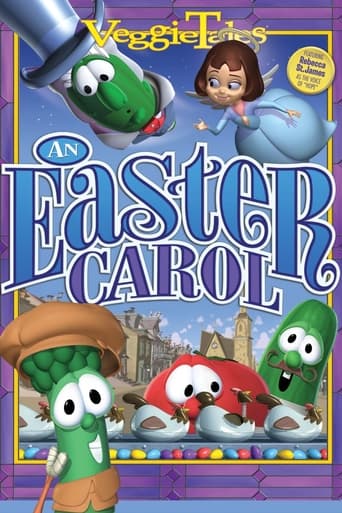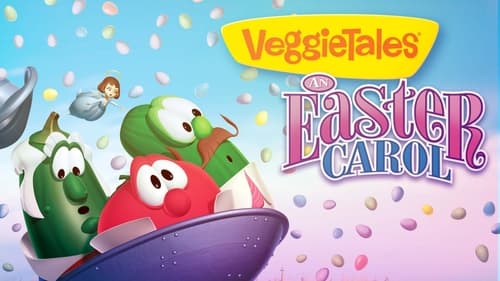



good back-story, and good acting
Instead, you get a movie that's enjoyable enough, but leaves you feeling like it could have been much, much more.
View MoreEach character in this movie — down to the smallest one — is an individual rather than a type, prone to spontaneous changes of mood and sometimes amusing outbursts of pettiness or ill humor.
View MoreThe thing I enjoyed most about the film is the fact that it doesn't shy away from being a super-sized-cliche;
View Morethe film does speak of Jesus as the central figure in history & gives a brief summary of his incarnation, life, suffering, death, & resurrection. it includes moral insights into the value of people over things. but it misses the mark in such a horrific way that i was disgusted, saddened. in easter future (play off dickens), mr. nezzer sees the consequences of tearing down a church building--a police officer who once displayed courage has lost hope, those who once cared for orphans give up & orphans walk the streets homeless...all this because of the loss of a building. i understand the place for symbolism, but the inference that a building stands for hope or the meaning of the resurrection is folly. let us consider history & the enduring work of Jesus. when nations have tried to rid their people of the influence of Christianity by removing bibles or tearing down church buildings or forbidding meetings, was the hope of the resurrection lost?
View MoreOK, I read a few of the people's comments, and really, I think you've sort of missed the point of the movie. The movie isn't talking about Easter, but about the main character's view on life. See how he always thinks that his mother was talking about items, things, material stuff? But she really wanted to teach him to follow God, and love others. I understand that this is a very Christian oriented movie, and that it doesn't offend anyone- it is Veggie Tales, after all, a movie for Sunday School teachers and other Christian teachers for little kids, mostly preschool, to show to their students. Veggie Tales is a pretty safe way to get the point across.Now, to the movie itself. Awesome! The kids love it. We had forty preschoolers or more stuffed into one large room to watch it when it came out, and they payed attention! Rebecca St. James' song about Easter is spectacular, and Larry and Bob get into trouble by not obeying (will they ever learn?). The main character misses the point of Christianity, but in the end, he learns what it truly means. Just in time....There are a lot of statements in the film about Easter not being all of this silly stuff. But in reality, I don't think that that is the point at all- it's about remembering what Christ did for us, and that we should follow him first, and not material things. If you're teaching a class of young Christians, I highly recommend this to you.
View MoreIf you enjoy the other Big Idea productions, you will like this one. A unique look at Dickens that places the lovable Veggies in a struggle between what society says they should do and what their conscious tells them to do. The literary and movie allusions are priceless. The Rebecca St James song at the end is absolutely gorgeous. To say that you didn't like a Veggie Tales product because of the "religious propaganda" is like saying you watched a football game but didn't like it because of all the athleticism. That's the whole point.My children loved it and I even found myself snickering a few times.
View MoreThis is the first Veggie Tales feature (it's almost a shortat 49 minutes, it's just on the edge of IMDb's time qualification for a feature) that I've watched, and I have to say that it has made me a bit reluctant to watch more. While there are positive aspects, and the animation is attractive enough, the story and script left much to be desired. Worse, An Easter Carol is very thinly disguised religious propaganda. In terms of content, it feels more like a computer version of a Jack T. Chick tract (those infamous Christian propaganda comics). This is the kind of thing that will be popular in Sunday schools. At that, if you're Christian and you have kids that you want to indoctrinate (or "brainwash", even less charitably) into your beliefs, then An Easter Carol isn't a bad choice. You should preferably show it to your kids close to Easter, of course.The story is a fairly transparent adaptation of Charles Dickens' A Christmas Carol (originally published in 1843). The characters even have campy English accents. It concerns a cucumber named Ebenezer Nezzer (this is a Veggie Tales film, so of course all the main characters are vegetables), who is basically an "evil capitalist". Nezzer runs a factory that manufactures hollow plastic Easter eggs (a bit like Silly Putty containers without the Silly Putty); they emerge from mechanical chickens.Meanwhile, the reverend--who is a stalk of asparagus, his son, and two of Nezzer's workers are urging him to celebrate Easter in church. Nezzer, who seems obsessed with upholding his grandmother's legacy--she started the factory over 100 years ago--says that he can't close the factory down for even a day. In fact, he refuses to even give his workers the day off. He will not let his grandmother be forgotten.So late at night on Easter eve he dreams of the ghost of his grandmother, who tells him that he'll receive a visitor at midnight. The visitor is Hope, an angel (oddly she isn't a vegetable) who emerges from an egg-shaped music box. She serves as the "ghost of Christmases past, present and future", or Easter past, present and future in this case, and tries to stress the "true meaning behind Easter" by showing him his grandmother in church, his contemporaries talking about him, and the consequences of his plan to knock down the church to build an amusement park-like Easter facility instead.The Christian propaganda arises initially with the constant talk of the "true meaning of Easter". There is an anti-capitalist, anti-materialist overtone to all of this. Of course, a similar message can be found in Dickens' A Christmas Carol, but it is far subtler there, and far subtler in most filmic adaptations of Dickens. The Christian propaganda isn't overbearing here at first, either, although it is less subtle. But once the angel takes Nezzer to Easter future, writer/director Tim Hodge drops all pretenses and goes into a full-on evangelical mode. Using the stained glass windows of the church--the unveiling of new windows is a subplot--he tells the story of Jesus, up to his crucifixion and resurrection, of course, with a heavy emphasis on the typical gobbledy-gooky Christian metaphysics.It's odd that they chose not to make Jesus a vegetable. I suppose they believed that it might turn out to be offensive to some of the audience, but that only underscores the propaganda nature of the work. Hodge can't risk anything that could possibly be read as controversial, even though it would make a lot more sense in context for Jesus (and the angel) to be a carrot, or a rutabaga, or something else.The animation is done exclusively by computers and has the look of your average computer or console game. The means that it isn't extremely high budget or sophisticated, ala the typical Pixar film, say, but it is attractive enough if you enjoy the typical environments you encounter in game worlds. There is at least a fair amount of 3D modeling, and there are a lot of intriguing textures incorporated. I found a number of "sets" in the film enchanting, but I'm easily drawn in to fantasy worlds. Most children will be, also.For adults, at least, there are a couple weird aspects to the animation, however. The strangest aspect is that the vegetables, although they're generally anthropomorphic, do not have any limbs. This tends to make them seem like quadruple amputees as they move around the Veggie Tales world. Because the characters need to manipulate objects, the problem is solved by merely having objects float around as necessary, as if the vegetables hand arms and hands but they were just invisible. I'm not sure why that tactic was chosen. If we're going to give vegetables faces and make them talk, why not give them limbs, too? Maybe it's just because limbs, and especially hands, aren't the easiest things to draw.Like a large percentage of children's films, An Easter Carol is also a musical. The music is serviceable to pretty good, and one tune even cleverly spoofs the song performed on the train by the salesmen at the beginning of The Music Man (1962). That was a nice touch. There are other kinds of artistic touches and references that are enjoyable, too, such as the Willy Wonka references in Nezzer's factory.However, the deciding factor for most viewers/consumers will solely be whether you agree with the film's religious ideology. For many people, including myself, Easter _is_ just a holiday mired in bunnies, colorful clothing and decorations, candy and such. Before it was pre-empted by Christianity, it was simply a celebration of the vernal equinox, or the coming of spring. For those folks, this is not the best Easter-related film to show your kids.
View More